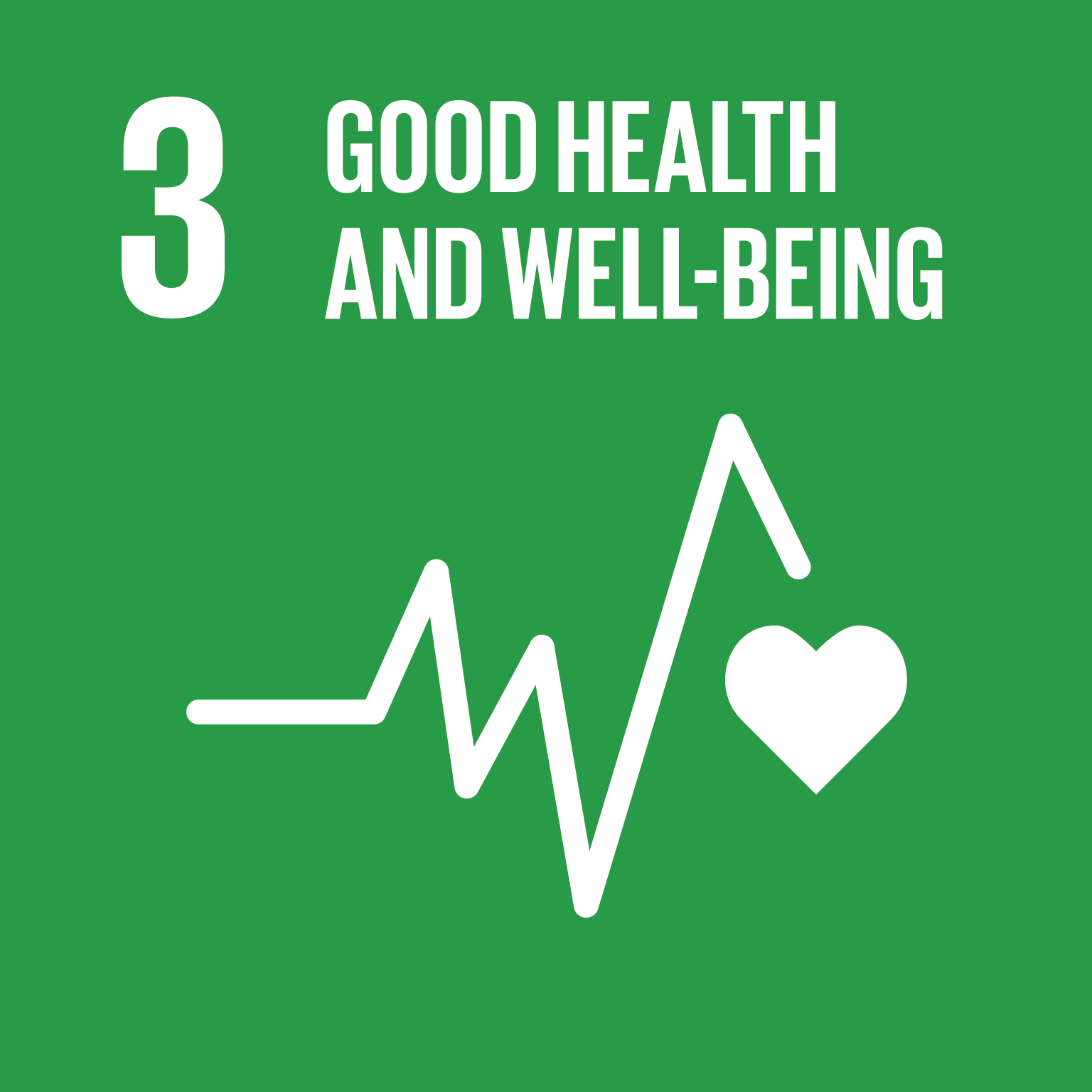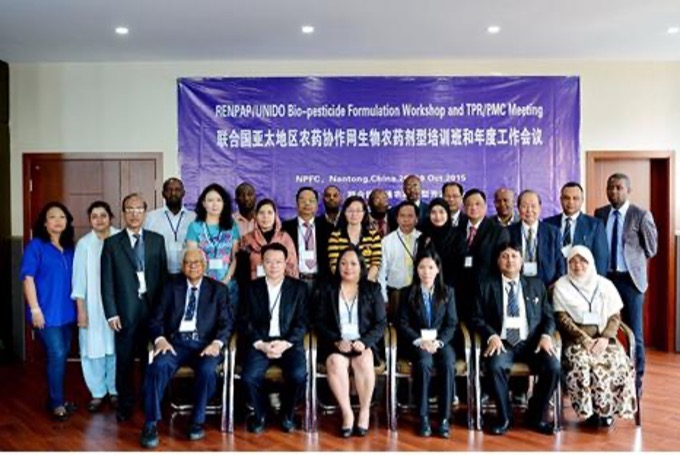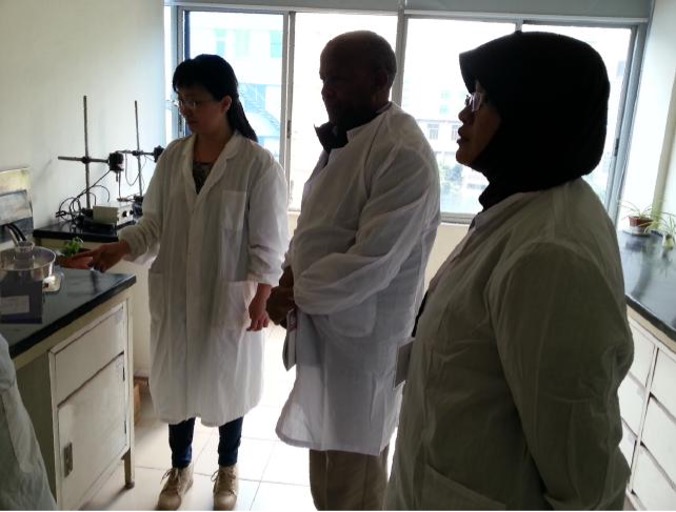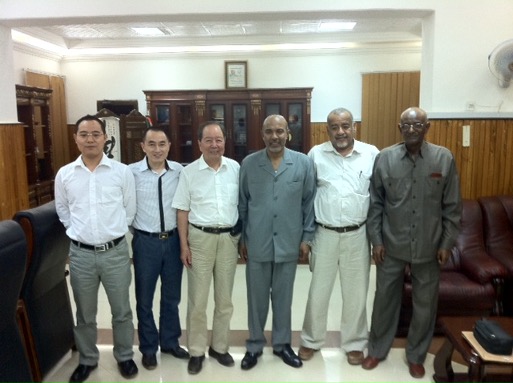 Productive Capacity Construction in the Pesticide Industry
Promoting the development of the green crop protection industry in Sudan
Productive Capacity Construction in the Pesticide Industry
Promoting the development of the green crop protection industry in Sudan

Challenges
Sudan has been classified by the United Nations as one of the world's least developed countries (LDCs). It is an agrarian country whose economy is heavily dependent on subsistence agriculture, which accounts for 27.5 per cent of GDP (2013). The use of pesticides has become a necessary tool to protect crops from pest damage and save human and animal lives from vector-borne and other diseases. However, there were no pesticide manufacturing plants for agriculture due to its poor agricultural technology, according to a senior official from Minister of Agriculture and Irrigation of Sudan; one hundred per cent of pesticides are imported from abroad, often highly toxic agrochemicals using old, unsafe pesticide formulations of varying toxicity to control pests, diseases and weeds.
Since the first generation of pesticides in the world was born in 1940s, pesticide pollution had been criticized. It has taken almost five decades to estimate the serious effects of these chemicals, which not only caused drift and introduced organic pollutants to the environment, but also was hazardous to food safety and the health of applicators, workers and farmers, according to the World Health Organization.
Research and development in agrochemicals in developed countries played a key role in bringing highly active, broad spectrum, less toxic pesticides and their user- and environmentally-friendly pesticide formulations to the market. These have vastly reduced the problems associated with the production and use of pesticides. However, all these benefits are mainly available to developed countries. Hence, there is an urgent need to introduce and promote environmentally friendly and safe pesticide formulations in developing countries, especially in LDCs, as most of them have no access to these products due to high cost and patent protection.
Towards a Solution
To promote the national development of the green crop protection industry in Sudan, the China South-South Development Center Project and its partner, the Nantong Pesticide Formulation Development Center (NPFC), designed a technology transfer package for commissioning an environmentally-friendly pesticide formulation plant in Sudan. The plant was intended to produce products that were supposed to replace old polluting pesticide formulations in the market based on persistent organic pollutants and organic solvents, with benefits for environment protection, food safety and human health, while also increasing agricultural productivity.
The project contributed to several Sustainable Development Goals (SDGs), such as SDG 2 (Zero hunger), SDG 3 (Good Health and Well-being), SDG 9 (Industry, Innovation and Infrastructure) and SDG 13 (Climate action). It also contributed to the Istanbul Programme of Action (IPoA) Priority Areas 1 (Productive capacity - infrastructure, energy, science, technology and innovation, private sector development) and 2 (Agriculture, food security and rural development).
As the implementing unit, NPFC is a state-owned, non-profit, self-sufficient organization with years of experience in research and development of environmentally-friendly pesticide formulations and plant construction, which was helpful in assisting Sudan to get access to new green technologies in agriculture. The construction investment was provided by Agriculture Organizations under the Ministry of Agriculture, Sudan. The project was a pilot project of technology transfer among developing countries, and also a demonstration project of South-South cooperation based on equality and mutual benefit. The project was executed under the National Execution modality (NEX) within the South-South development cooperation project framework, and contributed to environmental protection, food safety and human health, while also increasing agricultural productivity.
Experts from NPFC visited Sudan to collect information on pesticides and their formulations used in Sudan, and had a feasibility study report to establish an environmentally-friendly water-based pesticide formulation plant in Sudan. A research and development team was assembled for this project. Two formulation chemists from NPFC worked on three new environmentally-friendly formulations for about 12 months, involving a recipe, process, study of physical and chemical properties product , analytical method and quality standardization of the formulation. The project products were all microcapsule formulations.
Compared to older traditional formulations, Microcapsule is an important water-based formulation which is produced and sold in developed countries at an increasing rate. Its usage and efficacy are superior to Emulsifiable Concentrates (EC), and it is safe and easy to use. As the next generation of major formulations to replace EC, the manufacturing cost of Microcapsule is lower than that of EC, which is helpful to famers in Sudan, who often cannot afford the high cost of pesticides.
Through its implementation, the project trained more than 10 technicians, helped them establish an environmentally-friendly pesticide factory and popularized new pesticide preparation technology. This is of great significance. On the one hand, it has improved the research and development level of agricultural research institutions in Sudan, and on the other hand, it has helped to establish a pesticide factory locally, changing the situation of having no local pesticide factories so that pesticides can only be imported. Since then, farmers have had the opportunity to use affordable, low-toxic, environmentally-friendly pesticides. The project has been instrumental in improving the level of agriculture in Sudan, increasing crop productivity, and thus increasing farmers' incomes.
The implementation of the project helped to replace the persistent organic pollutants (POPs), which in line with the Stockholm Convention on POPs and “Rotterdam Convention on Prior Informed Consent” and, to a certain extent, contributed to restoring the local and surrounding ecological environment, as well as ensuring food security, biological safety and the sustainable development of the agricultural community. The research results of the project and empirical models of technical cooperation could be disseminated as good practices in developing countries, particularly in LDCs.
Contact Information
Countries involved
Supported by
Implementing Entities
Project Status
Project Period
Primary SDG
Secondary SDGs
Similar Solutions
| NAME OF SOLUTION | Countries | SDG | Project Status | |
|---|---|---|---|---|
Accelerating the Transformational Shift to a Low-Carbon Economy in Mauritius Towards supplying 35 percent of the country’s energy needs with renewables by 2025 |
China, Sudan | 05 - Gender Equality 09 - Industry, Innovation and Infrastructure 13 - Climate Action | Ongoing | View Details |
Accelerator Labs Network Following collective intelligence methods to address emerging sustainability challenges and the growing demand for local solutions |
China, Sudan | 08 - Decent Work and Economic Growth 13 - Climate Action | Ongoing | View Details |
Accessibility of Financial Services and the Private Sector in Africa Maximizing the impact of financial cooperation on economic development and industrialization in Africa |
China, Sudan | 08 - Decent Work and Economic Growth | Completed | View Details |
Accessible Dictionary Inclusive Dictionary for all |
China, Sudan | 09 - Industry, Innovation and Infrastructure | Completed | View Details |
Adaptation for Smallholder Agriculture Programme Establishing better working conditions for smallholder farmers through the use of good practices and new technologies |
China, Sudan | 08 - Decent Work and Economic Growth 11 - Sustainable Cities and Communities 13 - Climate Action 15 - Life on Land | Ongoing | View Details |


